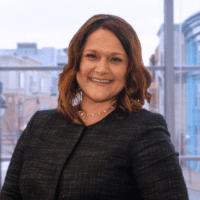As many school districts prepare to continue instruction during the COVID-19 closures, questions have arisen as to what privacy and security considerations must be undertaken in implementing virtual learning.
Online education comes with its share of challenges, especially while adhering to the requirement of providing equitable access to special education students. School districts are aware of their obligation to adapt the online instruction to meet the unique learning needs of students with disabilities.
But what of protecting the privacy of students during online instruction?
The Family Educational Rights and Privacy Act, or FERPA applies to both written and digital student records directly related to a student and maintained by an agency. For students under age 18, the provisions about what may (or must) be shared or not shared apply to their parents or guardians. Once a student turns 18, the protections transfer to them directly. FERPA prohibits “improper disclosure” to third parties of personally identifiable information (PII) derived from student records.
For digital platforms used during regular school attendance, school districts typically have agreements in place with certain dedicated educational software vendors which address compliance with FERPA. Now schools are looking to software platforms allowing videoconferencing, recording, and screen sharing to implement continued instruction.
The Federal agency overseeing FERPA guidance has issued the following with respect to online learning and privacy concerns during “online group instruction” during COVID-19 closures. “…as teachers generally do not disclose personally identifiable information from a student’s educational record during classroom instruction using video classrooms similarly does not raise FERPA concerns.”
What if a parent or sibling observes the online classroom?
FERPA does not specifically prohibit a parent or professional working with the parent from observing the parent’ s child in the classroom. This is because FERPA would generally prohibit a teacher from disclosing information from a child’s education records to other students in the classroom, as well as prohibit a teacher from disclosing information from a child’s education records to the parents of another child who might be observing the classroom.
A student record is not created for each individual student and maintained by the school district in providing online instruction. The act of attending class does not create an educational record.
What if the district records the class for future use by other students in the class?
Recording the class creates a record, however the record is not directly related to a student and is not maintained by the school for the purpose of information specific to a student. Recording online classes or video conferencing will not violate FERPA. Precautions should be made to limit the sharing of the recording beyond the intended use by the students and teachers. FERPA does not protect the confidentiality of information in general; rather, FERPA applies to the disclosure of tangible records and of information derived from tangible records.
It is important to remember that FERPA does not provide a private right of action. The USDOE has not yet utilized its enforcement mechanism in withholding subsidies against an educational agency for a FERPA violation.
As always, our office can provide specific guidance to ensure that you remain in compliance with applicable law during this pandemic.

